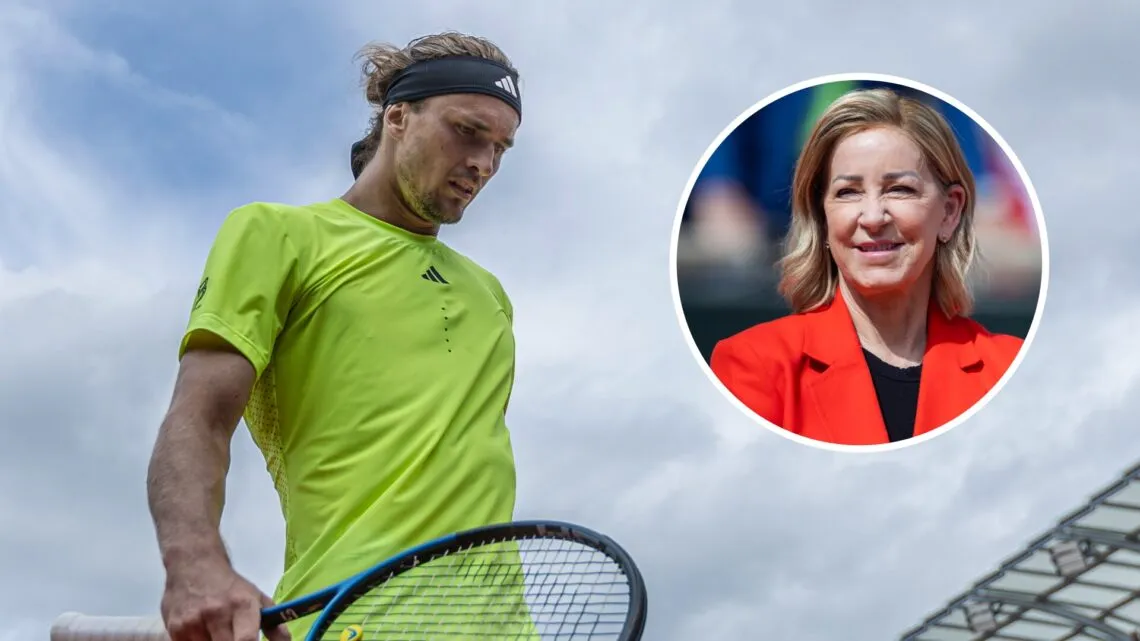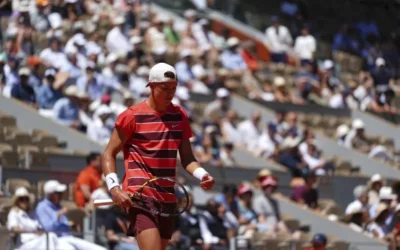The Misconceptions Surrounding Alexander Zverev: Insights from Chris Evert
The world of tennis is rife with opinions and narratives, some of which often lead to misconceptions about players, particularly emerging talents. One such player who has stirred a myriad of discussions is Alexander Zverev, the German tennis sensation. As the French Open unfolds, with the likes of Jannik Sinner, Coco Gauff, and Jack Draper also in action, it’s crucial to address the recurring mistakes in judgment surrounding Zverev’s career and potential. In this article, we delve into these misconceptions and highlight the thoughts of tennis legend Chris Evert, who recently added to the conversation.
The Rise of Alexander Zverev
Zverev burst onto the scene as a teenage prodigy, gaining recognition for his impressive skills and powerful serve. By winning the ATP Finals in 2018, defeating top players along the way, he established himself as a formidable force in men’s tennis. However, the journey has not been entirely smooth. Zverev has faced challenges both on and off the court, and while he has shown flashes of brilliance, there have been criticisms regarding his consistency and mental fortitude.
Chris Evert’s Opinion
Chris Evert, a Hall of Famer and one of the greatest female tennis players in history, recently shared her perspective on Zverev’s performance and public perception. During a broadcast segment leading up to the French Open, Evert mentioned that many fans and commentators have a preconceived notion about Zverev that might not align with his reality. She voiced a common belief—that Zverev is unable to perform consistently on the grand stage, particularly at significant tournaments.
The Reality Check
While Evert’s observations are well-intentioned, they echo a broader misunderstanding of Zverev’s development as a player. Tennis analysts and fans often overlook the subjective nature of performance under pressure. Zverev’s career has been marked by both remarkable highs and challenging lows. At the French Open, where the competition is particularly intense, he has indeed struggled more than some of his contemporaries. However, critics tend to ignore the fact that this is a natural part of the process for many athletes.
Pressure and Performance
Players like Zverev often have to deal with immense pressure that comes with high expectations from fans and the media. This pressure can lead to performance anxiety, which is sometimes misconstrued as a lack of determination or capability. Evert herself experienced the weight of expectations during her career, and thus her comments, while insightful, reflect a tendency to generalize. She cautioned that one poor performance, especially in a Grand Slam setting, should not dictate an athlete’s entire career narrative.
Analyzing Zverev’s Game
Zverev’s playing style is characterized by an aggressive baseline game, remarkable serve, and versatility across different surfaces. His physical attributes allow him to compete with some of the best players in the world, but that is often overshadowed by the lapses in concentration that lead to untimely defeats. Critics may cite Zverev’s struggle with closing out matches as evidence of his inability to perform under pressure, but this failings can be seen across many players, especially those in transitional phases of their careers. The 26-year-old is still refining his mental game.
The Importance of Context
Context is critical in analyzing Zverev’s career trajectory. Tennis is an incredibly competitive sport, and the journey to the top is seldom linear. Injuries and personal challenges have also played a part in shaping his performances. For instance, Zverev underwent wrist surgery in 2020, which set him back considerably. However, he has continually worked on his game and returned to the top ranks. This context is often lost in the ‘win or lose’ narratives that crowd sports discussions.
Comparative Performance
When juxtaposed with his peers such as Medvedev, Tsitsipas, and Sinner, Zverev’s records compare favorably. Each player has had ups and downs, yet Zverev’s struggles tend to draw more attention. The media’s fixation on his struggles, added with the resurfaced criticisms from past tournaments, often leads to a distorted perception of his capabilities. During the ongoing French Open, Zverev has showcased resilience and growth, suggesting that he is gradually overcoming his previous mental hurdles.
Future Prospects
Looking ahead, the future appears bright for Zverev. He has the potential to be a consistent contender at Grand Slams and is still young enough to learn from his experiences. Evert’s acknowledgment of Zverev’s talent, even if shrouded in her reservations, highlights that there is recognition of his abilities. The narrative should pivot from viewing Zverev as an underperformer to recognizing him as a talent still in development.
Tennis Community’s Role
Lastly, it is essential for the tennis community—be it players, analysts, coaches, or fans—to create a supportive environment for talents like Zverev. Public perception plays a significant role in an athlete’s confidence and mental well-being. Rather than being quick to criticize or form blanket statements, it is more productive to encourage players through their difficult phases, allowing them the space to grow into their potential.
Conclusion
As Alexander Zverev continues to carve his name into the annals of tennis history, the conversation should reflect a more nuanced understanding of his journey. Contributors tuned into the French Open should strive to separate personal biases and longstanding narratives from the reality of Zverev’s talent. Even amid challenges, Zverev has shown a determination to evolve, and as Chris Evert acknowledges, the potential within him is yet to fully manifest. His journey serves as a reminder that resilience can lead to greatness, provided he is met with support rather than criticism. The tennis world should watch closely—not only for the results but for the growth of a player still in the making.







